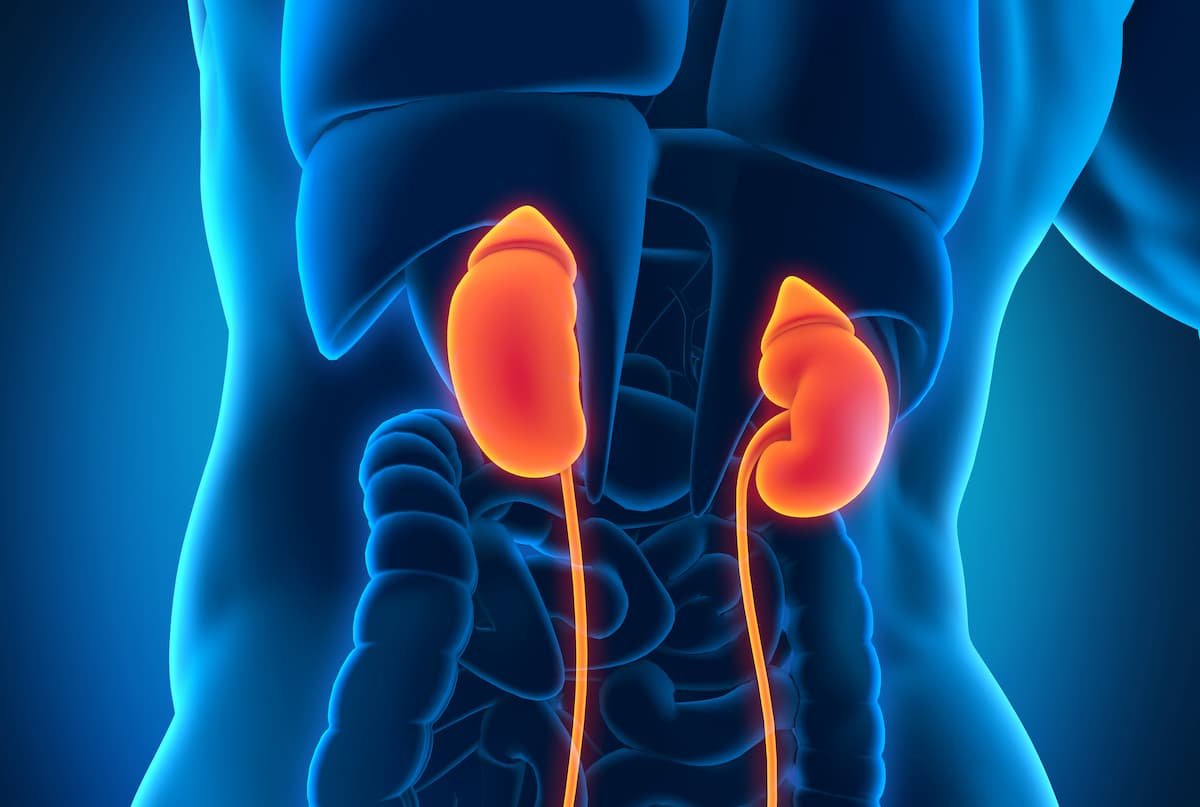Belzutifan/Cabozantinib Demonstrates Durable Antitumor Activity in Clear Cell RCC
Belzutifan plus cabozantinib showed continued anti-tumor activity in patients with clear cell renal cell carcinoma.
Belzutifan plus cabozantinib showed continued anti tumor activity in patients with clear cell renal cell carcinoma.

The phase 2 LITESPARK-003 trial (NCT05239728) showed durable anti tumor activity when patients with clear cell renal cell carcinoma (ccRCC) who were treatment naïve or who had previously received treatment with immunotherapy were given belzutifan (Welireg) plus cabozantinib (Cabometyx).1
The data were presented at the 2023 European Society of Medical Oncology Congress (ESMO) by Toni K. Choueiri, MD, professor of medicine at Harvard Medical School and an attending physician, director of the Genitourinary Oncology Disease Center, and director of the Lank Center for Genitourinary Oncology at the Dana-Farber Cancer Institute in Boston, Massachusetts.
In his presentation, Choueiri explained that inactivation of VHL results in the overexpression of HIFs, “and active HIF-2α is a key oncogenic driver in clear cell renal cancer.”2,3
Choueiri added that initial results from LITESPARK-003 showed promising anti-tumor activity in patients who were either treatment naïve (cohort 1) or previously treated with immunotherapy (cohort 2).4,5 At a median follow-up of 14.0 months, there was a 57% overall response rate (ORR) in cohort 1. At a median follow-up of 24.6 months, there was a 31% ORR in cohort 2. At the 2023 ESMO Congress, Choueiri presented updated findings from both cohorts.
The primary end point was ORR per RECIST v1.1 by investigator assessment, and secondary end points included duration of response, progression-free survival (PFS), overall survival (OS), and safety.
Cohort 1 had 50 patients enrolled and 50 patients treated, with a median follow-up of 24.3 months (range, 4.1 to 48.2 months). Twenty-four patients discontinued treatment. Cohort 2 had 52 patients enrolled and 52 patients treated, with a median follow-up of 39.8 months (range, 33.1 to 55.0 months). Forty-six patients discontinued treatment.
In cohort 1, 28 patients (56%) were International Metastatic RCC Database Consortium (IMDC) favorable risk, and 22 patients (44%) were IMDC intermediate/poor risk. In cohort 2, 11 patients (21%) were IMDC favorable risk and 41 patients (79%) were IMDC intermediate/poor risk.
Choueiri reported that ORR in cohort 1 was 70% in the entire cohort, and 79% in patients who were IMDC favorable risk and 59% in patients who were IMDC intermediate/poor risk. In cohort 2, ORR was 31% in the entire cohort, and 27% in patients who were IMDC favorable risk and 32% in patients who were IMDC intermediate/poor risk.
Choueiri reported that all patients in cohort 1 had a reduction in target lesion size and that in cohort 2, 45 of 51 patients (88%) with available postbaseline imaging saw a reduction in target lesion size. In cohort 1, median PFS was 30.3 months (95% CI, 16-not reached [NR]), and in cohort 2, median PFS was 13.8 months (95% CI, 9-19). In cohort 1, median OS was NR (95% CI, NR-NR), and in cohort 2, median PFS was 26.7 months (95% CI, 20-41).
Any-grade treatment-related AEs (AEs) were reported in 100% of cohort 1 and 98% of cohort 2. Treatment-related AEs of grade 3 or higher occurred in 23 patients (46%) in cohort 1 and 33 patients (64%) in cohort 2. There were no grade 5 treatment-related AEs in cohort 1, and 1 patient experienced a grade 5 treatment-related AE in cohort 2. Seven patients (14%) in cohort 1 discontinued any drug because of a treatment-related AE, and 11 patients (21%) in cohort 2 discontinued any drug because of a treatment-related AE. Serious treatment-related AEs were observed in 7 patients (14%) in cohort 1 and 16 patients (31%) in cohort 2, and dose reduction because of a treatment-related AE occurred in 38 patients (76%) in cohort 1 and 37 patients (71%) in cohort 2.
“Belzutifan plus cabozantinib continue to show durable anti-tumor activity in patients with clear cell RCC who are treatment naïve or previously treated,” Choueiri concluded.
References
- Choueiri TK, et al. Phase II LITESPARK-003 study of belzutifan in combination with cabozantinib for advanced clear cell renal cell carcinoma (ccRCC). Presented at the European Society of Medical Oncology (ESMO) Congress. October 20-24, 2023. Madrid, Spain. Abstract LBA87
- Choueriri TK, Kaelin Jr WG. Targeting the HIF2–VEGF axis in renal cell carcinoma. Nature Med. 2020;26(10):1519-1530. doi:10.1038/s41591-020-1093-z
- Sato Y, Yoshizato T, Shiraishi Y, et al. Integrated molecular analysis of clear-cell renal cell carcinoma. Nat Genet. 2013;45(8):860-7. doi:10.1038/ng.2699
- Choueriri TK, Bauer T, Merchan J, et al. Phase II study of belzutifan plus cabozantinib as first-line treatment of advanced renal cell carcinoma (RCC): Cohort 1 of LITESPARK-003. Presented at the European Society of Medical Oncology (ESMO) Congress. September 9-12, 2023. Paris, France. Abstract 1447O
- Choueiri TK, McDermott DF, Merchan J. Belzutifan plus cabozantinib for patients with advanced clear cell renal cell carcinoma previously treated with immunotherapy: an open-label, single-arm, phase 2 study. Lancet Oncol. 2023;24(5):553-562. doi:10.1016/S1470-2045(23)00097-9
Frontline Chemo-Free Regimen Supported in HR+/HER2+ Breast Cancer Therapy
January 1st 2024Combining anastrozole with palbociclib, trastuzumab, and pertuzumab as a frontline therapy for hormone receptor–positive, HER2-positive breast cancer may avoid some of the toxicities associated with chemotherapy, says Amy Tiersten, MD.
Oncology On-The-Go Podcast: ASCO 2023 Recap
June 19th 2023Experts from University of California, Los Angeles Health and Mayo Clinic discuss key data presented at the 2023 American Society of Clinical Oncology (ASCO) Annual Meeting in the gynecologic and gastrointestinal cancer spaces and how they may impact patient care.